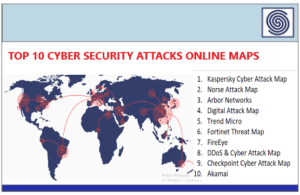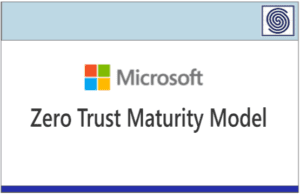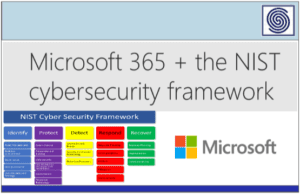Source: hackread.com – Author: Uzair Amir.
Stay protected from SEO poisoning, a cyber threat exploiting search engine rankings to spread malware and phishing scams. Learn risks, real-world examples, and preventive measures for safer browsing.
Did you know that over 80% (PDF) of cyberattacks exploit online platforms, including search engines? These indispensable tools guide billions of users to the content they seek, but their trustworthiness can be weaponized.
Cybercriminals are exploiting search engine optimization (SEO) techniques to distribute malware, launch phishing attacks, and spread harmful content. This practice, known as SEO poisoning, manipulates search results to lure unsuspecting users into clicking on malicious links.
Recent reports indicate a significant rise in SEO poisoning attacks. Between August 2023 and January 2024, there was a 60% increase in malware detections stemming from malicious search results. Such trends highlight the growing sophistication of these tactics and the critical need for vigilance among businesses and individuals alike.
What is SEO Poisoning?
SEO poisoning is a malicious strategy where cybercriminals manipulate search engine algorithms to rank harmful websites prominently in search results. These websites often contain malware, phishing schemes, or scams designed to steal sensitive information.
Attackers capitalize on high-demand keywords tied to trending topics or urgent events, such as natural disasters, major product launches, or public health crises. By employing techniques like keyword stuffing, spammy backlinks, and deceptive content, they make their sites appear legitimate and lure unsuspecting users.
Key Risks of SEO Poisoning:
- Malware Distribution: Clicking on infected links can install ransomware, spyware, or other malware.
- Phishing Scams: Users are tricked into providing sensitive data like passwords or credit card information.
- Reputation Damage: Legitimate businesses can lose credibility if associated with malicious links.
One example is the surge of Gootloader malware in early 2023. Attackers targeted niche search terms, such as “implied employment agreement,” to redirect users to infected websites. These attacks emphasize how even low-competition search terms can become cybercriminals’ playgrounds.
Real-World Examples of SEO Manipulation
SEO manipulation has been used in several high-profile attacks, exploiting the trust users place in search results:
- Fake Antivirus Software: Users searching for free antivirus tools were directed to malicious sites posing as trusted providers. These fake programs encrypted files and demanded ransom payments, exploiting users’ trust in well-known antivirus brands like Avast, Bitdefender and Malwarebytes. Fake antivirus websites have been known to impersonate popular security providers to deceive users.
- Holiday Shopping Scams: During peak shopping seasons, cybercriminals created fake e-commerce sites targeting popular products. These fraudulent sites were designed to rank high in search results, allowing attackers to trick users into entering their payment information, which the criminals then stole.
- Software Search Exploitation: In 2023, searches for popular tools like Blender 3D led users to fraudulent sites offering infected downloads. Such campaigns highlight the dangers of SEO poisoning when targeting trusted software.
These examples show how attackers exploit trust in search results and highlight the importance of vigilance, particularly during periods of heightened online activity.
Protecting Against SEO-Based Threats
Although SEO poisoning is a persistent threat, proactive measures can help both businesses and individual users reduce the risks.
For Businesses
Businesses must safeguard their websites and digital presence from exploitation. Trusted SEO providers can optimize websites while identifying and mitigating vulnerabilities, such as fake backlinks or unauthorized content changes, often exploited in SEO poisoning campaigns.
According to Stellar SEO, a custom SEO services provider, exploiting SEO-related vulnerabilities has even been adopted by top-tier groups such as the Chinese DragonRank, which was recently discovered manipulating search engines to redirect users to malicious websites.
For Users
Users can protect themselves by adopting proactive online habits:
- Verify the Source: Always inspect URLs carefully before clicking, especially when searching for trending or high-demand topics.
- Use Trusted Security Tools: Antivirus software and browser extensions can help identify and block harmful sites. For example, providers like Kaspersky have shown how cybercriminals exploit marketing strategies to launch attacks.
- Stay Informed: Awareness of the latest cybersecurity trends is crucial for recognizing and avoiding malicious tactics.
By combining secure SEO strategies with vigilance, businesses and users can significantly reduce their exposure to SEO poisoning threats.
How Search Engines Are Combating SEO Poisoning
Search engines like Google and Bing constantly update their algorithms to detect and penalize malicious websites. These updates target behaviors such as keyword stuffing, suspicious backlinking patterns, and misleading content.
Key Defensive Measures Include:
- Machine Learning Algorithms: These tools analyze billions of web pages for signs of malicious intent.
- Safe Browsing Technology: Platforms like Google warn users about harmful websites before they can be accessed.
- Domain Reputation Systems: Search engines evaluate the trustworthiness of domains to demote those linked to malicious activity.
Despite these efforts, cybercriminals continue to evolve their techniques, creating sophisticated tactics to bypass detection. For instance, in November 2024, attackers exploited niche search queries like “Are Bengal cats legal in Australia“ to lure users to malicious websites. Such incidents underscore the importance of proactive measures by users and businesses to complement automated systems. Recognizing and avoiding malicious links remains a shared responsibility.
Conclusion
SEO poisoning is a growing threat at the intersection of cybersecurity and digital marketing. By exploiting legitimate SEO techniques, cybercriminals deceive users, distribute malware, and undermine trust in search engines.
For businesses, partnering with trusted providers of custom SEO services ensures websites are optimized securely, preventing vulnerabilities that attackers might exploit. For users, adopting habits like verifying sources, using reliable security tools, and staying informed about emerging threats is essential for staying safe online.
Every time you search online, consider the risks that lurk behind seemingly trustworthy links. By remaining vigilant and proactive, we can protect our digital spaces and maintain trust in the tools that shape our online world.
Original Post url: https://hackread.com/seo-poisoning-how-scammers-search-engines-traps/
Category & Tags: Security,Technology,Cybersecurity,Google,Scam,Search engine,SEO,SEO Poisoning – Security,Technology,Cybersecurity,Google,Scam,Search engine,SEO,SEO Poisoning
Views: 2




















































